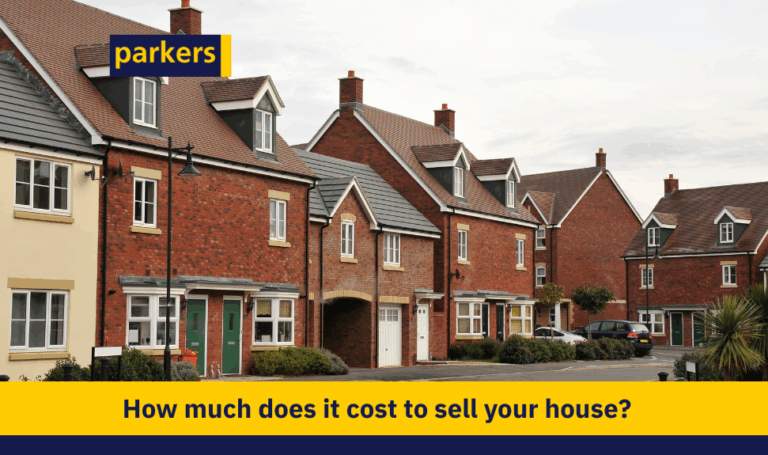Pricing your home correctly is one of the most important decisions you’ll make as a seller. It not only influences how quickly your property sells, but also how much interest it generates. That’s where comparable evidence comes in.
Used by estate agents, surveyors, and buyers alike, comparable evidence helps identify a realistic market value based on similar homes in your area. The more accurate and relevant the data, the more confident you can be in your pricing strategy.
Related: Setting the right asking price: a guide for home sellers
Understanding comparable evidence in property valuation
Comparable evidence refers to the use of recent sales data from properties that closely match your own. Estate agents will examine properties that have recently sold nearby, ideally with the same number of bedrooms, similar square footage, condition, and features to assess what buyers are currently paying.
This method of valuation is standard practice in the UK and is widely relied upon by professionals across the industry.
Why it’s crucial in today’s market
With shifting buyer behaviour and greater transparency through online property platforms, buyers are doing their homework. Before booking a viewing, many will have already compared your asking price against similar recently sold homes using publicly available portals.
If your price appears out of sync with the local market, they may move on before even stepping through the door. Solid comparable evidence in property valuation helps you avoid that risk by ensuring your price is backed by local sales performance, not wishful thinking.
Related: Pricing your home right: a comprehensive market guide
How estate agents use comparable evidence
When carrying out a valuation, estate agents look at a range of factors:
- Location – ideally within the same postcode or nearby streets
- Property type – such as terraced, detached, or semi-detached
- Size and layout – number of bedrooms and bathrooms, square footage
- Condition – including any recent renovations or structural issues
- Sold price – not just asking prices, but what buyers actually paid
They’ll also consider market activity over the last 6–12 months, demand levels, and how similar homes performed during their time on the market. This information is then adjusted for your home’s unique features and current buyer demand to create a realistic valuation.
Find out the accurate value of your home
The role of RICS in comparable evidence
In more formal valuations such as for mortgage approvals or probate, surveyors must follow strict standards set by the Royal Institution of Chartered Surveyors (RICS).
RICS comparable evidence in property valuation requires at least three reliable comparables. Each must be explained in context and carefully adjusted to match the subject property. Factors like location, market trends, and property differences all need to be clearly accounted for.
Although estate agent valuations aren’t always formal RICS assessments, many still apply these standards to ensure pricing is as accurate as possible.
Related: What is a Red Book Valuation? Your guide to RICS standards
Comparable evidence in real estate valuation
As a seller, having access to comparable evidence in real estate valuation offers several benefits:
- Transparency: You’ll understand where your valuation comes from.
- Credibility: Buyers are more likely to take your asking price seriously if it reflects the current market.
- Negotiation strength: You’ll be better positioned to justify your price if a buyer attempts to negotiate.
It also helps avoid delays caused by down-valuations which can happen if a buyer’s mortgage lender doesn’t agree with the agreed sale price.
Related: Homeowner loans explained
Common misconceptions about valuation evidence
Some sellers assume that browsing similar listings online is enough to determine value. But portals often show asking prices, not what the homes sold for.
That’s a key difference. Agents use Land Registry data and professional platforms that track sold prices, not just advertised figures. This is what gives comparable evidence its accuracy.
Another common myth is that two homes on the same street are automatically valued the same. Differences in layout, extensions, interiors, or even garden aspect can have a significant effect.
Related: Property valuation for probate
What if there are no ideal comparables?
Sometimes, it’s hard to find a perfect match, especially if you own a unique home, or if few properties have sold recently nearby. In those cases, estate agents will draw from a wider area and apply professional judgment to adjust for differences like size, features, or location.
A well-informed agent will also know the buyer demand in your area, allowing them to sense-check whether a higher or lower price is achievable in current conditions.
How to use comparable evidence to your advantage
If you’re getting ready to sell, ask your agent to talk you through the comparable evidence they’ve used in your valuation. Don’t be afraid to ask:
- How recent are the sales?
- How similar are the properties?
- Were any adjustments made for differences?
It’s not just about trust; it’s about understanding your position in the market and setting yourself up for success.
A valuation grounded in evidence
Accurate pricing doesn’t just help your home sell faster. it helps it sell smarter. When your asking price is supported by strong comparable evidence, buyers notice. You’re more likely to get serious enquiries, fair offers, and a smoother path to completion.
At Parkers, we use real sales data and in-depth local market knowledge to guide every valuation we provide. If you’re thinking of selling, your nearest local team is here to help you start strong with pricing you can trust.
Book a free valuation with Parkers today and discover what your home is worth today.







